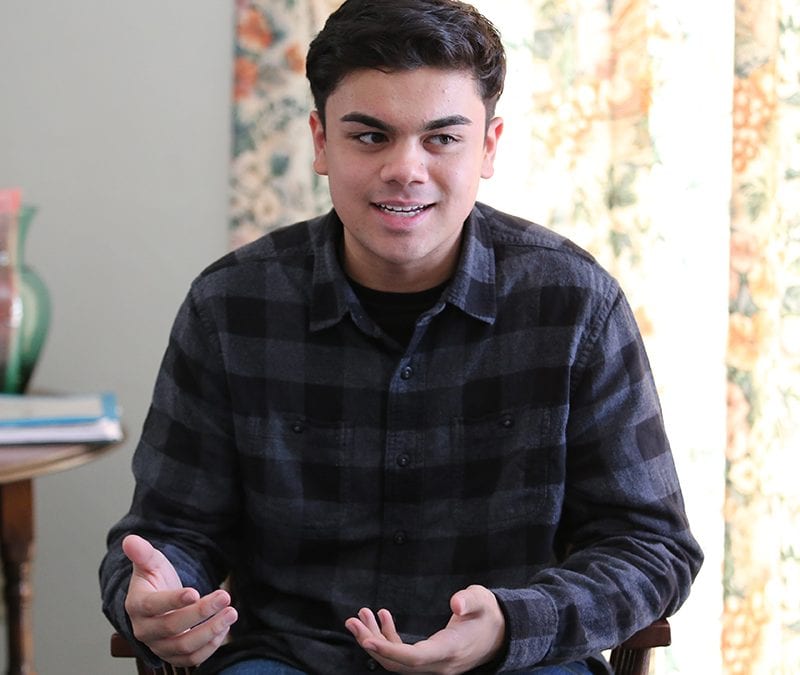A selected group of 46 Upper School students attended a half-day leadership training workshop facilitated by the American Conference on Diversity (ACD) on Monday, October 19. ACD works to provide experiential youth leadership programs that empower individuals and institutions to address issues of bias and discrimination and advocate for meaningful social change in communities.
The morning program began with a large group discussion, during which facilitators and students unpacked four key terms to aid the conversation: cultural competency, privilege, oppression, and culture.
Andayah Sams ’16, who is a Co-Clerk of Diversity Committee, Peer Leader, and member of Gender Equality Forum, PRIDE Club, and MLK, Jr. Club, attended the conference.
“I was surprised by the amount of time we spent on defining the four terms,” said Andayah. “By defining these phrases though, we discovered how complex the definitions are, and I think it was very valuable to discuss and understand what each phrase meant.”
Thought-provoking questions and comments raised included:
- Can someone with privilege be oppressed?
- Is oppression a systematic dynamic?
- Talk about the privilege of attending MFS.
- What is the ultimate goal for recognizing privilege?
- Why can conversations about discrimination, privilege, oppression, race, gender identity, sexual orientation, and social justice be uncomfortable?
“We developed community norms to follow before our discussion and I brought up ‘leaning into discomfort,’” said Andayah. “We say the phrase a lot in Diversity Committee and when we hold forums. The real way to change prejudice is through interaction, and sometimes we need to be forced to ask hard questions and talk about it.”
Noah Borromeo ’17, who also attended the ACD workshop, embraced the idea of ‘leaning into discomfort.’
“I wanted to go into the workshop with an open mind because it can be easy to be defensive about some issues,” said Noah. “We talked about things we normally wouldn’t talk about and it was interesting to see other people’s perspectives and hear valid points.”
For the second portion of the program, the large group separated into smaller groups to discuss various scenarios surrounding the themes of diversity. All 46 students will have a second follow-up training session in February that will focus on the cycle of prejudice and build on the skills learned in this workshop.
“I thought the program was a great opportunity and it was an amazing workshop,” said Andayah. “We were able to have lots of kids attend and it was focused on a micro level at what we can do to help our school grow and build on what we already have set in place at MFS.”

